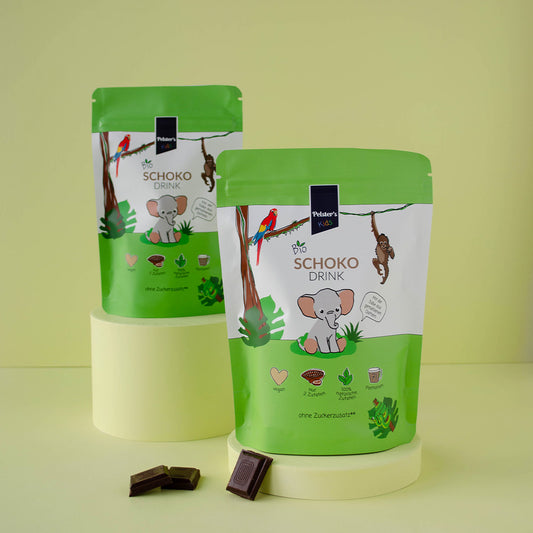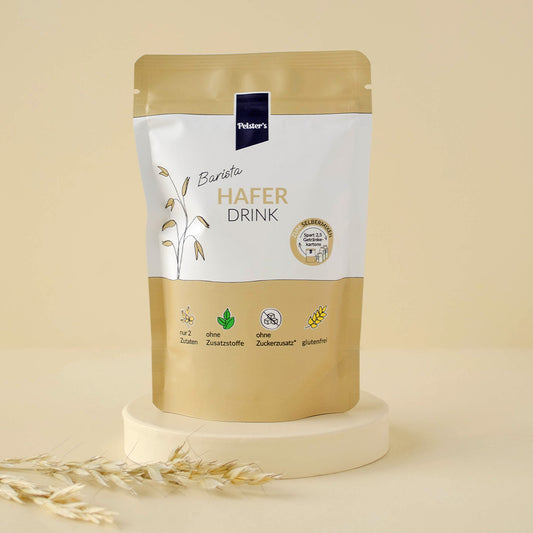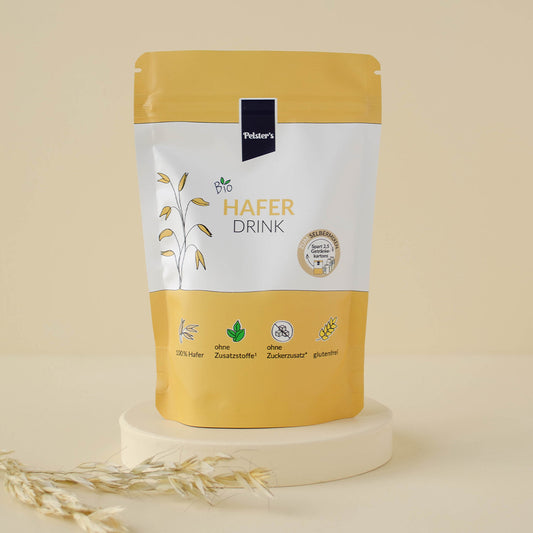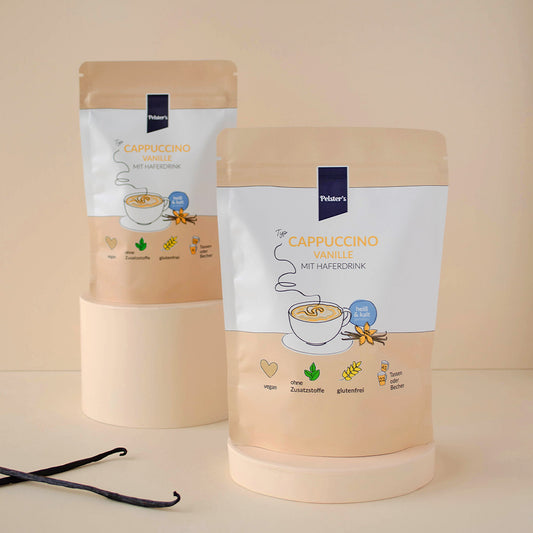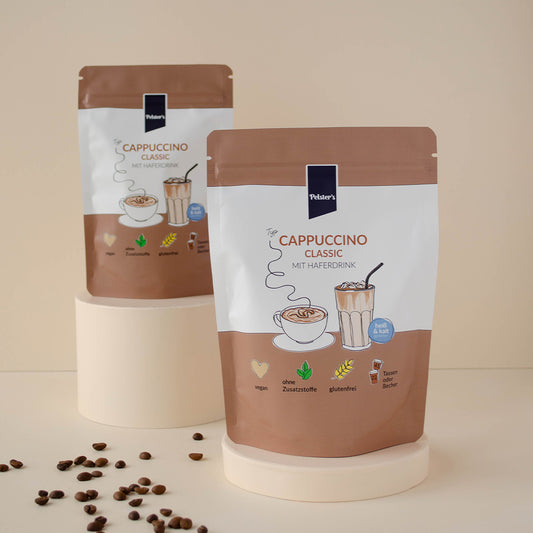Getting to the bottom of a myth
"Humans need animal milk" is a widespread myth that is not entirely true. Let's take a look together at why this is the case!
In Germany, around 15% of the population is lactose intolerant and many more have difficulty breaking down the milk sugar contained in animal milk. But why is that? - As babies, we have an excess of the enzyme lactase, which is needed to break down the lactose in breast milk. When we reach the age when we no longer need breast milk, the enzyme also decreases and we can only tolerate little or no cow's milk. This reaction of our body suggests that milk is not a necessary component of our further diet.
The influence of cow’s milk on the nutrition of babies
So what is milk produced for? - There is a simple answer to this: cow's milk is nothing more than mother's milk for calves. It is specifically tailored to the needs of cows and not to those of humans. Cow's milk causes calves to double their body weight three times faster than babies do with mother's milk. For this reason, babies should not drink pure cow's milk, because no mother wants this rapid development.
Cow's milk and health

So why should adults tolerate cow's milk well? - The global population shows a completely different picture, as over 75% cannot tolerate cow's milk and for good reason: it promotes cardiovascular diseases, increases cholesterol levels and mortality.
Cow's milk also contains nutrients that my body needs - doesn't it? - Cow's milk does indeed contain important nutrients such as calcium and proteins, but these nutrients are also contained in sufficient quantities in other foods. In everyday life, protein is consumed through nuts, lentils or tofu, and mineral water and plant-based foods such as sesame, kale or spinach ensure an optimal calcium intake.
Conclusion
The widespread belief that humans need animal milk is a myth that can be refuted by scientific and health evidence. In Germany, around 15% of the population is lactose intolerant, and worldwide over 75% of people cannot tolerate cow's milk. This suggests that milk is not an essential part of the human diet. The production of cow's milk is primarily geared towards the needs of calves, which grow much faster than human babies. The nutrients that milk provides, such as calcium and protein, can easily be obtained from other plant-based foods such as nuts, lentils, tofu, mineral water, sesame, kale and spinach. In addition, the consumption of cow's milk can pose health risks such as cardiovascular disease and high cholesterol levels.
Therefore, the consumption of animal milk is not entirely beneficial for humans. We therefore recommend using plant-based alternatives !
Source: https://www.peta.de/themen/ist-milch-gesund/






